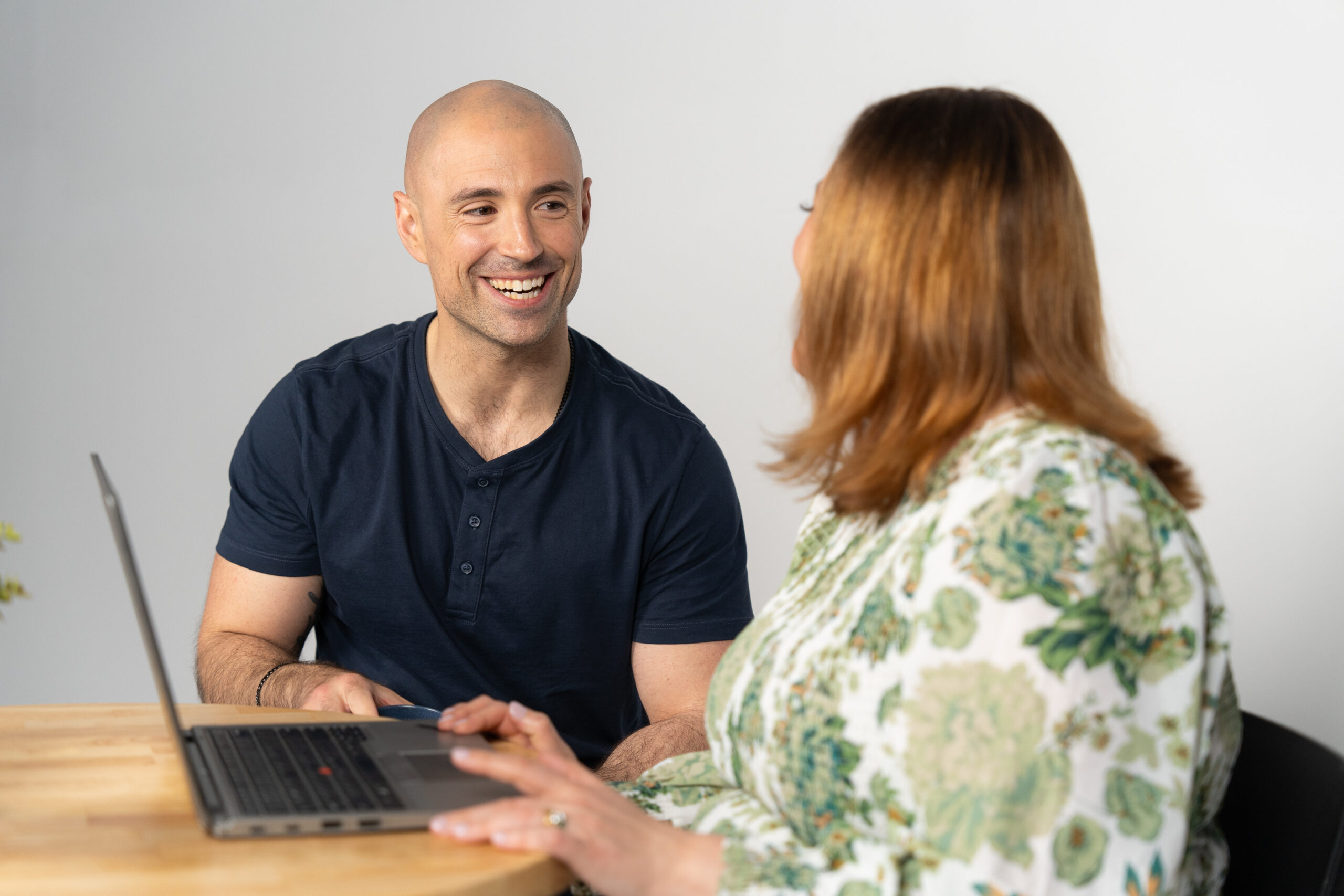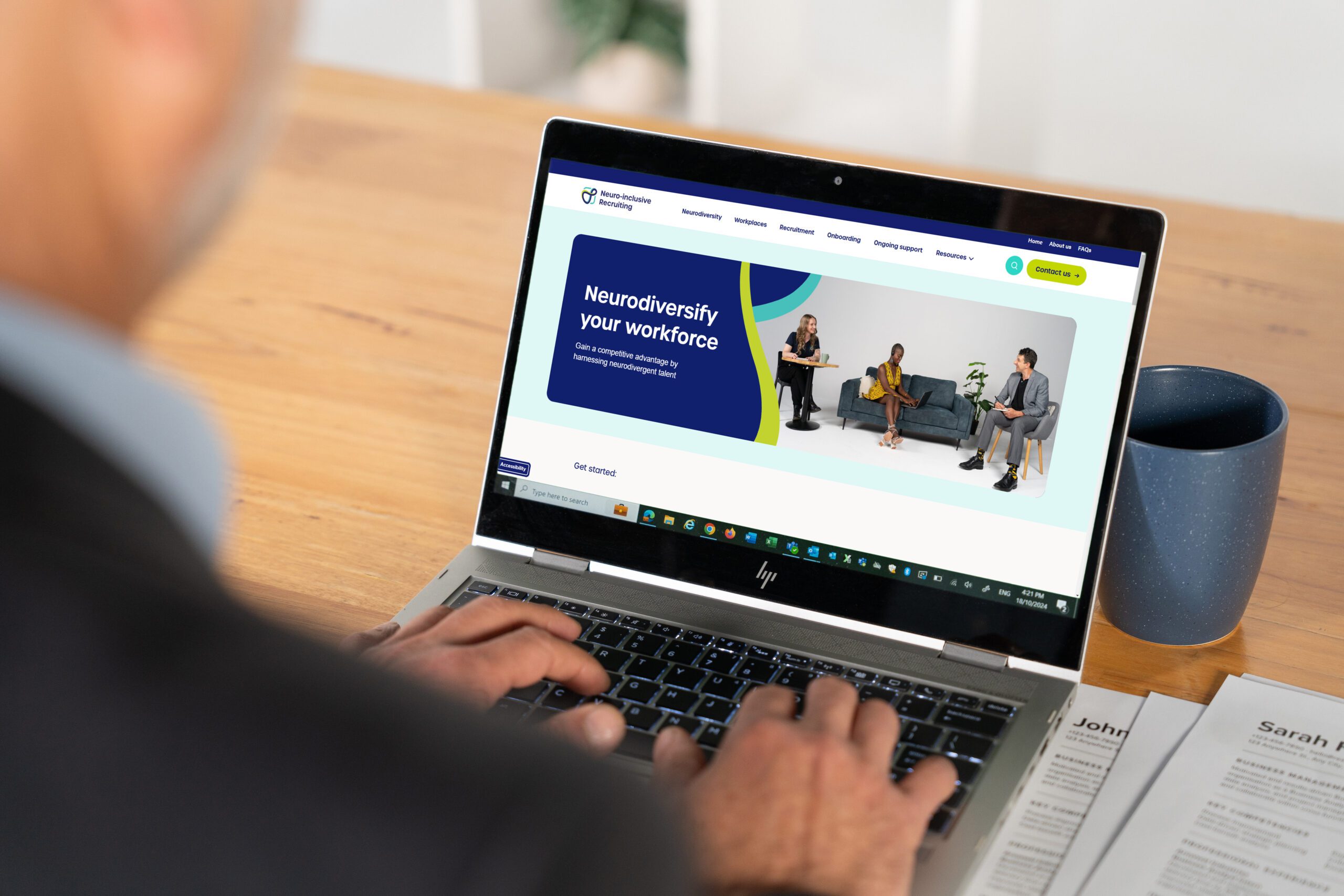Rethinking Recruitment
Job interviews provide an opportunity for both the employer and the candidate to gather important information. Assessment methods should support recruiters to make well-informed and strategic hiring decisions that align with the organisation’s specific needs and goals. When considering interviews as a method for job selection, it’s important for employers to critically assess whether this approach is truly the most effective way to evaluate the skills required for the role they are trying to fill.
Things to consider when planning interviews

Interviews often place a heavy emphasis on interpersonal and communication skills. However, these criteria may not be the most relevant indicators of a candidate’s ability to perform the job effectively.
Research suggests that conventional interviews may not fully accommodate neurodivergent needs, potentially impairing their performance due to factors like anxiety and sensory needs.
This raises the question: Are traditional interviews the best method to assess the skills and competencies truly needed for the role?
To enhance inclusivity, employers should consider whether an interview, as traditionally conducted, accurately measures the necessary job skills. If an interview is relevant, employers should consider
– Formulating interview questions that allow candidates to effectively demonstrate their abilities while reducing potential barriers
– Creating a sensory considered setting
– Preparing the candidate with interview information including the questions that will be asked, access information and sensory information
– Understand non-verbal differences, such as a candidate’s preference for not providing eye contact or handshakes.
– The impact of neurodivergences such as dyslexia and autism might impact interview performance and to avoid misinterpreting these behaviours as a lack of capability.
– Addressing potential barriers and unconscious bias that might prevent candidates from performing their best.
– Planning for potential adjustments and accommodations
Creating a neuro-inclusive interview supports the assessor to evaluate a candidate’s skills and qualifications rather than their social performance.
For more tips about how to make interviews neuro-inclusive please visit the Interviews section on the Neuro-inclusive Recruiting website.
Using the STAR interviewing method

When interviewing neurodivergent candidates, it’s essential to use question types that allow candidates to effectively demonstrate their abilities while reducing potential barriers. Some question types can play to a neurodivergent candidate’s strengths, while others may present challenges. Understanding these nuances helps create a more equitable interview process.
Using the STAR Method to support neurodivergent applicants requires creating a more accessible and inclusive interview experience. Here’s a guide for interviewers on how to adapt the STAR Method to ensure neurodivergent candidates can effectively demonstrate their skills and experiences.
Design neuro-inclusive STAR-based questions
Craft clear, direct questions and provide the STAR structure in advance. This can help neurodivergent applicants prepare and understand what kind of information you’re seeking.
Example STAR questions with clear structure:
Situation: “Think of a specific time you worked on a project or task. Can you tell me briefly about the context of that project?”
Task: “What was your role, and what were you responsible for in that situation?”
Action: “What steps did you take to complete the task or address any challenges?”
Result: “What was the outcome of your efforts, and what did you learn from the experience?”
Tips for inclusive questioning:
- Use plain, unambiguous language to avoid misunderstandings.
Avoid abstract or hypothetical questions.
Allow candidates to bring notes or examples with them to support their answers.
- Provide interview preparation materials
Share the STAR framework and questions with the candidate before the interview.
Explain what each element of STAR means and what kind of information you’re looking for.
Offer a visual guide or written summary of the interview process to reduce uncertainty.
3. Ask follow-up questions with clarity and patience
If the candidate’s answer lacks detail or focus, use direct follow-up questions to guide them through each part of the STAR method.
4. Evaluate responses with flexibility
Neurodivergent candidates may communicate or structure their answers differently. Focus on the content of the answer rather than the delivery.
5. Summarise and reflect objectively
After the interview, review responses based on the content and relevance rather than presentation style or social cues. Ensure you’re assessing their skills and experiences rather than interpersonal dynamics.
By adapting the STAR Method thoughtfully, you can help to create an environment where neurodivergent candidates can fully showcase their strengths, leading to a fairer and more inclusive hiring process.
For more information about interview questions go to: https://neuroinclusiverecruiting.org.au/recruitment/assessment-methods/interviews/
Tips for working with neurodivergent employees
Respect individual communication styles
Some people may prefer written communication over verbal or may need more time to respond. Consider this when initiating and responding to the individual. By using the individuals preferred method of communication employers are more likely to foster more effective and clear communication leading to better outcomes.
Avoid interrupting and allow individuals to complete their thoughts without pressure. Interruptions to their thought processes may cause overwhelm or frustration.
Designing neuro-inclusive interviews – free resources!
If the interviews are identified as the most appropriate assessment method, then it is best to ensure they are carefully planned for. We have created downloadable resources around how to create neuro-inclusive interviews. From face to face to digitally recorded interviews, we have designed an information pack with comprehensive checklists and useful tips to help employers make their process inclusive for neurodivergent candidates.
Free interview resources include:
– Face to Face 1:1 Interviews
– Face to Face Group Interviews
– Phone interviews
– Informal interviews
– And more!
Check out all the free downloadable resources available now in the ‘Resources’ section on the website.







